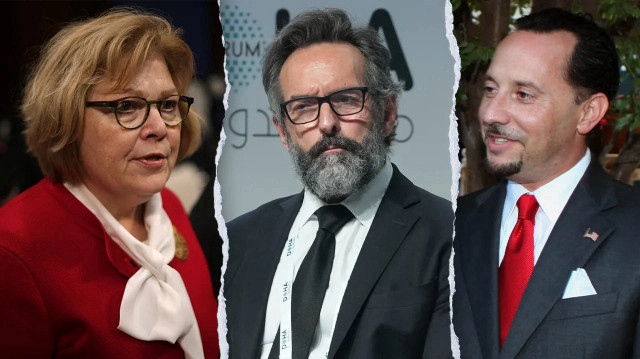
Whatever Syrian government arises out of transition, it needs to be inclusive, protect rights of all Syrians, including women and minorities, says US spokesperson
Three senior US diplomats have arrived in the Syrian capital Damascus to meet the country's current leaders and also try to locate journalist Austin Tice and other missing US citizens in the wake of the Assad regime's fall, the State Department said.
“We have been in touch, in contact, with all the groups in Syria, including HTS (Hayat Tahrir al-Sham),” department spokesperson Vedant Patel told a Thursday news briefing, referring to the group that spearheaded the recent opposition offensive leading to Bashar Assad's fall.
“We have once again and will continue to stress upon everybody that we have an importance of doing everything we can to find missing US citizens, including Austin Tice, and bringing them home," he added.
Freelance journalist Tice, a former US marine, was kidnapped in Darayya, Syria in 2012.
On the diplomatic trio's visit, a department statement said Assistant Secretary of State Barbara Leaf, Special Hostage Envoy Roger Carstens, and Special Adviser on Syria Daniel Rubinstein “will be engaging directly with the Syrian people, including members of civil society, activists, members of different communities and other Syrian voices about their vision for the future of their country and how the United States can help support them.”
The department said that the diplomats intend to engage with HTS to discuss the "transition principles" that were agreed upon by American, Arab, and Turkish officials during a meeting last weekend in Aqaba, Jordan.
US officials have underlined the importance of Syrian groups creating an inclusive governance process that ensures the fair treatment of all ethnic and religious minorities, including Christians.
Secretary of State Antony Blinken “stressed quite clearly the transition principles that have been the cornerstone of our ongoing diplomatic engagements, principles that now have been taken up by countries throughout the region and well beyond that,” said Patel.
“Our view is that when whatever government arises out of this transition, it needs to be inclusive, it needs to protect the rights of all Syrians, including women and minorities.”
Expressing Washington's desire that Syria not threaten its neighbors or “serve as a base for terrorism” or ally with terrorist groups like Deash/ISIS, Patel said Damascus is a member of the Chemical Weapons Convention.
“Like all governments, it needs to preserve critical state institutions and deliver essential services,” Patel said.
Bashar Assad, Syria's leader for nearly 25 years, fled to Russia after anti-regime groups took control of Damascus on Dec. 8, ending the Baath Party regime, which had been in power since 1963.

